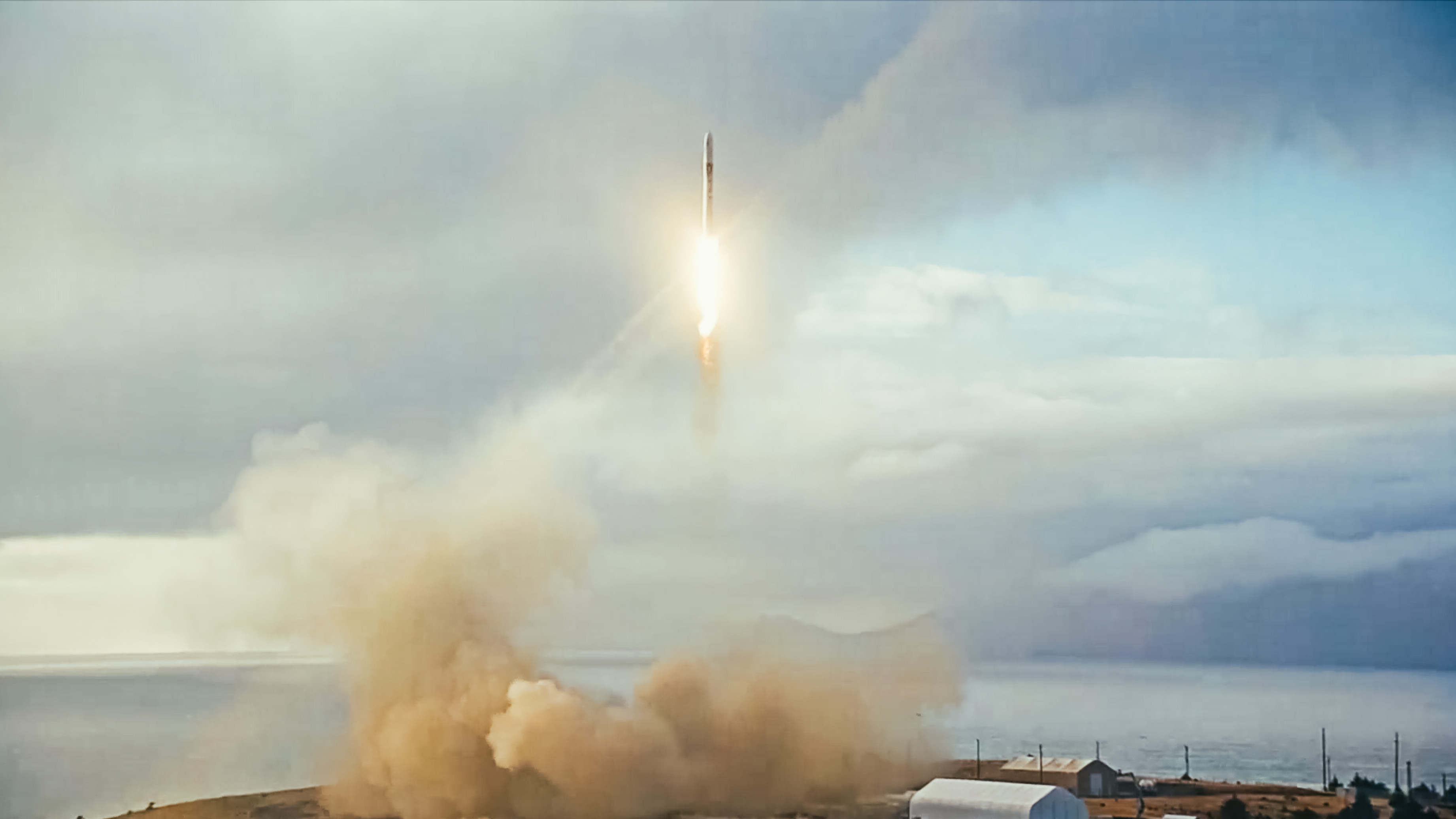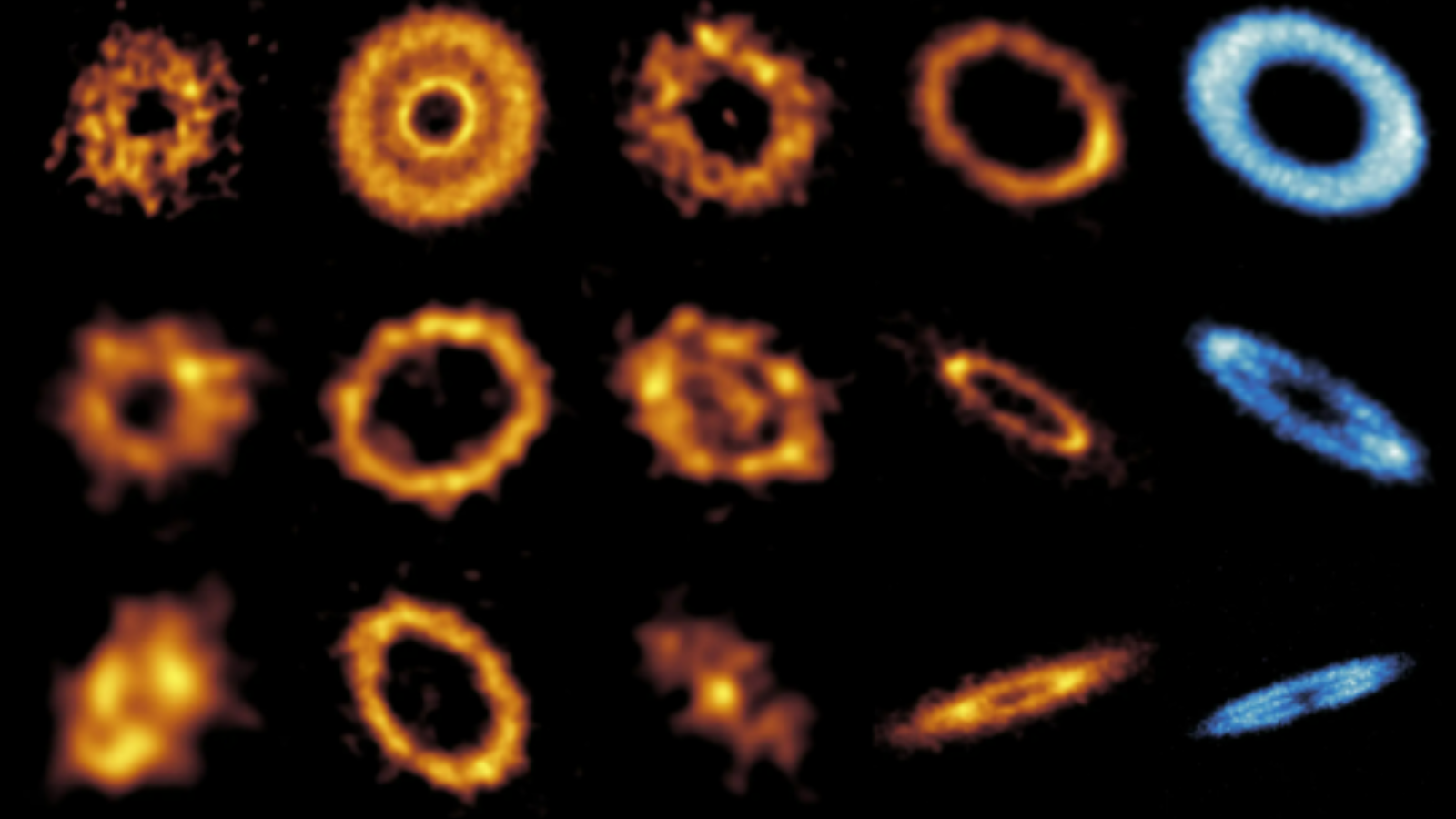'Unwanted fire' may have caused ABL Space Systems' launch failure

ABL Space Systems may have figured out what went wrong on its on first-ever liftoff.
The company's two-stage RS1 rocket crashed to Earth shortly after launching from Alaska's Pacific Spaceport Complex on Jan. 10, bringing a premature and fiery end to its debut orbital mission.
ABL quickly initiated a failure investigation in concert with the U.S. Federal Aviation Administration. A week later, that detective work has already made considerable progress, even homing in on a possible cause — a fire in the RS1's avionics system.
Related: The history of rockets
Flight 1 L+7 Update pic.twitter.com/PESithkTwVJanuary 18, 2023
The RS1's first stage "suffered a complete loss of power" 10.87 seconds after liftoff, ABL explained in a Twitter update on Wednesday (Jan. 18). The rocket continued to ascend for another 2.63 seconds, reaching a maximum altitude of 761 feet (232 meters) but then fell back to Earth, impacting about 60 feet (18 m) east of its launch pad.
"Approximately 95% of the vehicle total propellant mass was still onboard, creating an energetic explosion and overpressure wave that caused damage to nearby equipment and facilities," the company wrote in the update. The damaged gear included communications equipment at the pad, as well as fuel and water storage tanks.
The crash scattered debris over an area with a radius of 0.25 miles (0.40 kilometers) and sparked a fire that destroyed an ABL fabric hangar and much of the "integration equipment" it harbored, ABL wrote in the update.
Breaking space news, the latest updates on rocket launches, skywatching events and more!
Nobody was injured, as the affected area had been cleared before liftoff in accordance with safety procedures.
Seven days into the failure investigation, the team has identified several interesting "fact patterns," the update notes. For example, abnormal pressure and temperature spikes occurred in the first stage's aft cavity a few seconds after liftoff.
"Additionally, there is some visual evidence of fire or smoke near the vehicle QD and the engine bay after liftoff," the update states. (QD presumably stands for "quick disconnect," an interface joining the rocket with a propellant or other service line.)
"Shortly before power loss, a handful of sensors began dropping out sequentially," the update continues. "This evidence suggests that an unwanted fire spread to our avionics system, causing a system-wide failure."
ABL will work to verify that tentative conclusion and, if it is confirmed, determine the cause of the fire.
As the investigation continues, the company is also repairing the launch pad and gearing up for its second orbital launch attempt. It's too soon to speculate about the date of that next liftoff; the timeline depends on the results of the anomaly investigation, company representatives said.
ABL was founded in 2017 and is based in Southern California. The company intends to secure a significant portion of the small-satellite launch market with the 88-foot-tall (27 m) RS1, which is powered by nine of ABL's E2 engines in its first stage and one in its upper stage.
The rocket is capable launching up to 2,975 pounds (1,350 kilograms) of payload to low Earth orbit, according to ABL's users' guide. The company currently charges $12 million per RS1 mission and already has dozens of launches on its docket. For example, in 2021, ABL inked a deal with Lockheed Martin to fly up to 58 missions through 2029.
Mike Wall is the author of "Out There" (Grand Central Publishing, 2018; illustrated by Karl Tate), a book about the search for alien life. Follow him on Twitter @michaeldwall. Follow us on Twitter @Spacedotcom or on Facebook.

Michael Wall is a Senior Space Writer with Space.com and joined the team in 2010. He primarily covers exoplanets, spaceflight and military space, but has been known to dabble in the space art beat. His book about the search for alien life, "Out There," was published on Nov. 13, 2018. Before becoming a science writer, Michael worked as a herpetologist and wildlife biologist. He has a Ph.D. in evolutionary biology from the University of Sydney, Australia, a bachelor's degree from the University of Arizona, and a graduate certificate in science writing from the University of California, Santa Cruz. To find out what his latest project is, you can follow Michael on Twitter.
